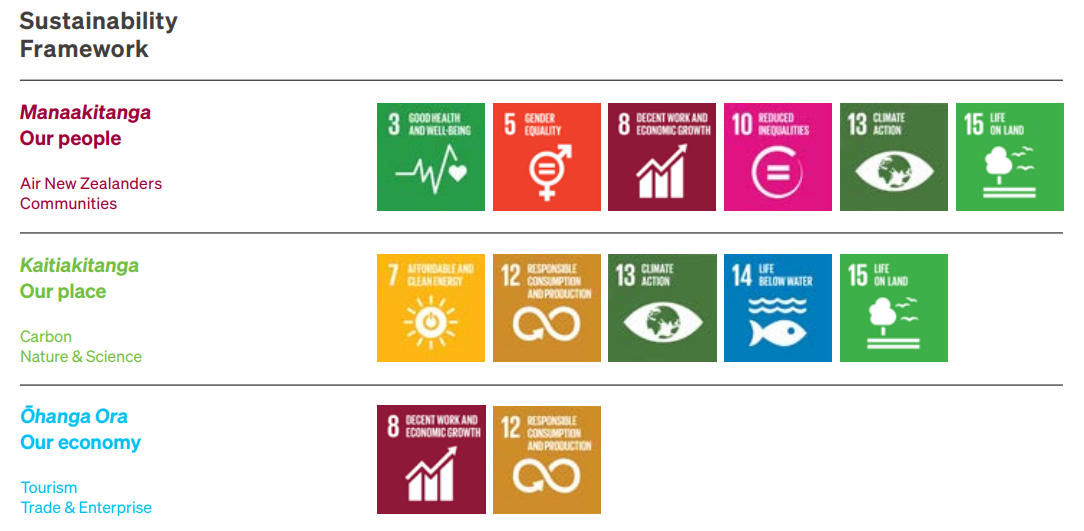As the expectations on corporate responsibility increase and as transparency becomes more prevalent, it is clear that companies are recognising the need to act on sustainability. It is no longer just about low prices, good service, clever marketing, a strong brand or good intentions, businesses now need to prove their ethical practices.
Air New Zealand is one airline that has set sustainability at the heart of its business strategies and has set some fairly sizeable targets to prove how seriously it takes the issue. It has recently released its latest sustainability report, which outlines the airline's progress against its sustainability goals over the past year.
The report tackles key themes including climate change and carbon reduction, embracing diversity and inclusion, supporting sustainable tourism, working with suppliers and reducing waste and plastic and Air New Zealand's head of sustainability, Lisa Daniell says she is pleased at the airline's progress against its goals, but admits there is still much work to be done.
"We have set ourselves some ambitious targets, but we've made great strides against our goals over the past 12 months. This includes preventing more than 15,000 tonnes of Carbon Dioxide from entering the atmosphere through combined operational initiatives, reducing plastic by nearly 55 million items across our network, increasing the number of women in senior leadership roles to 44% (up from 39% in 2018), and flying 350,000 more customers to destinations on our regional network than in the previous year," she says.
Ultimately though, responding to the climate crisis remains the airline's single biggest sustainability challenge. "While we've continued to build efficiencies in our own operation and invest in more modern, fuel efficient aircraft to curb carbon emissions, we've also been pleased to see an increase in the number of travellers who offset their emissions from flying over the past year," says Ms Daniell. "Going forward, we would love to see more corporate customers commit to offsetting their flights as well."
CHART - Air New Zealand's Sustainability Framework helps guide its actions and is aligned with the United Nations Sustainable Development Goals (SDGs), the blueprint to create a better and more sustainable future for all Source: Air New Zealand 2019 Sustainability Report
Source: Air New Zealand 2019 Sustainability Report
Air New Zealand's 2019 sustainability highlights include more than 180,000 customer journeys offset via the airline's FlyNeutral voluntary carbon offsetting programme - 40% more than in 2018; more than 2,500 tonnes of fuel and more than 8,000 tonnes of Carbon Dioxide saved by plugging aircraft into ground power at the gate; nearly 55 million plastic items to be removed or replaced with lower impact alternatives by the end of Oct-2019; and 120 tonnes of unopened items reinjected onto aircraft instead of going to landfill.